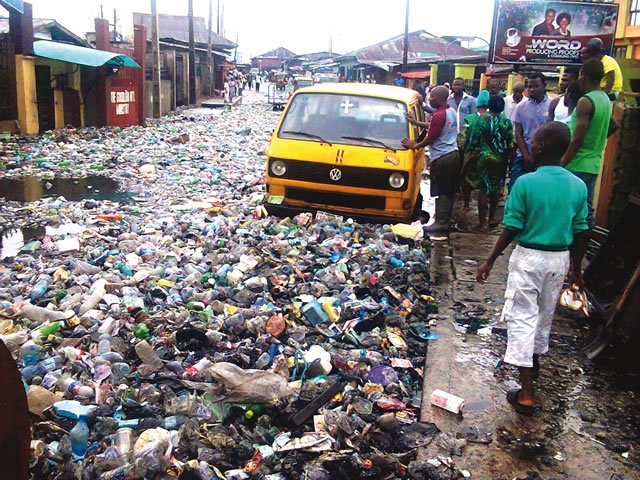Drug laws in Nigeria are critical in combating the harmful impacts of psychoactive drug usage. Drug misuse has a detrimental influence on the health, safety, and productivity of those who use it. Drug laws are enacted to limit the harmful effects of drug usage.
The NDLEA and NAFDAC Acts in Nigeria are drug laws aimed at combatting the problems of drug misuse and illicit drug trafficking in the country. The significance of drug legislation in Nigeria will be discussed in this essay. Continue reading to see how these drug laws can help you.

Table of Contents
List Of Top 100 Facts About Drug Laws in Nigeria:
The NDLEA Act authorizes drug enforcement agencies and employees in Nigeria to take actions aimed at eradicating and preventing the underlying causes of narcotic narcotics and psychotropic substances.
The NDLEA Act aims to develop and improve effective legal mechanisms for international cooperation in criminal proceedings in order to stifle international operations of illegal commerce in narcotic narcotics and psychotropic substances.
The NDLEA Act creates procedures for identifying, tracking, freezing, confiscating, or seizing money from drug-related offenses or property whose value corresponds to such proceeds.
The NDLEA Act is intended to eradicate illicit narcotic plant cultivation and to eliminate the illicit market for narcotic drugs and psychotropic substances, with the goal of reducing and eliminating human suffering and removing financial incentives for illicit narcotic drug and psychotropic substance trafficking.
The NDLEA Act imposes laws that restrict the use of conventional modes of transportation for illicit drug trafficking.
Drug laws in Nigeria impose measures such as coordinated preventative and repressive action, among other things, in the investigation and control of drug usage.
The NDLEA Act promotes the timely communication of scientific and technological information among drug enforcement officials in order to eradicate the unlawful use of narcotic narcotics and psychotropic substances.
When narcotic narcotics and psychotropic substances are seized, confiscated, or forfeited in Nigeria, drug laws specify ways to destroy or dispose of them.
The provisions of the NDLEA Act make it easier to find anyone (even those in detention) who agree to help with investigations or participate in processes involving narcotic narcotics and psychotropic substances.
Drug laws improve the efficacy of law enforcement in combating illicit narcotic and psychotropic drug trafficking in Nigeria.
The NDLEA Act authorizes drug enforcement personnel to establish, maintain, and secure communication in order to encourage the timely exchange of information concerning offices and to improve international cooperation in the suppression of illicit traffic in narcotic drugs and psychotropic substances by land, sea, and air.
Drug laws in Nigeria empower drug enforcement agencies to take charge of, supervise, control, and coordinate all responsibilities, functions, and activities related to the arrest, investigation, and prosecution of all offenses relating to the illicit trafficking of narcotic drugs and psychotropic substances.
The NDLEA Act empowers the NDLEA Agency to strengthen cooperation with the Attorney-Office, General’s the police force, customs agencies, immigration agencies, welfare officials, health officials, and other law enforcement agencies in the eradication of illicit traffic in narcotic drugs and psychotropic substances in Nigeria.
The NAFDAC Act gives the NAFDAC agency authority over the importation, exportation, manufacturing, advertisement, distribution, sale, and use of food, medicines, cosmetics, medical equipment, bottled water, and chemicals in Nigeria.
Drug regulations, such as the NAFDAC Act, work to guarantee that food, pharmaceuticals, cosmetics, medical devices, bottled water, and chemicals meet NAFDAC Council-approved standards for effective quality control. NAFDAC monitors the manufacturing process in factories as well as the raw materials used in manufacturing to guarantee that they satisfy standard criteria authorized by the NAFDAC Council.
The NAFDAC Act authorizes the NAFDAC Agency to inspect manufacturing facilities and raw materials for food, medicines, cosmetics, medical equipment, bottled water, and chemicals to verify that the end goods ingested by people are safe and satisfy the necessary standard requirements. Thus, NAFDAC establishes essential quality assurance procedures to assure strict adherence to defined standards, which usually translates to safeguarding consumers of such regulated items.
Based on the terms of the NAFDAC Act, the NAFDAC Agency is tasked with inspecting imported pharmaceuticals, cosmetics, medical equipment, and other items to guarantee that these regulated products are safe for use by Nigerian customers. Any product that does not meet the desired standard is discarded.
For efficient quality control, the many parties engaged in the production, importation, exploitation, sale, and distribution of food, drugs, cosmetics, bottled water, chemicals, and medical devices in Nigeria are directed by NAFDAC’s prepared standard standards and recommendations.
The NAFDAC Act mandates the establishment of relevant labs in critical regions around the nation to provide the Agency with the necessary information to make educated judgments concerning the safety and quality of food, pharmaceuticals, cosmetics, medical devices, chemicals, and bottled water in Nigeria.
The NAFDAC Act gives the Agency authority over the exportation of food, medicines, cosmetics, medical equipment, bottled water, and chemicals, as well as the issuing of quality certification.
The NAFDAC Act authorizes the NAFDAC Agency in Nigeria to decide the acceptability (or otherwise) of pharmaceuticals, food, cosmetics, medical devices, chemicals, and other regulated items for human use. As a result, customers are safeguarded from consuming hazardous and harmful items since regulated products that do not satisfy the standards authorized by the NAFDAC Council will not have the NAFDAC logo.
The NAFDAC Act authorizes the NAFDAC Agency to conduct and organize research on the storage, adulteration, distribution, and safe use of food, pharmaceuticals, cosmetics, medical equipment, and chemicals, among other things. These fields of study give
Food, pharmaceuticals, cosmetics, and medical equipment, among other things, are subjected to adequate examination by NAFDAC-authorized experts in order to determine the quality and safety of the aforementioned regulated products.



Be the first to comment